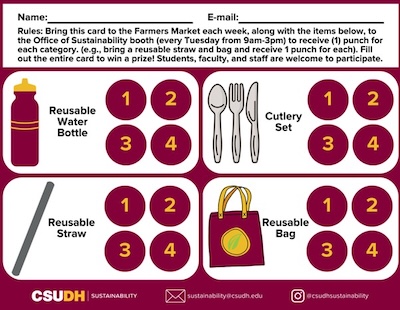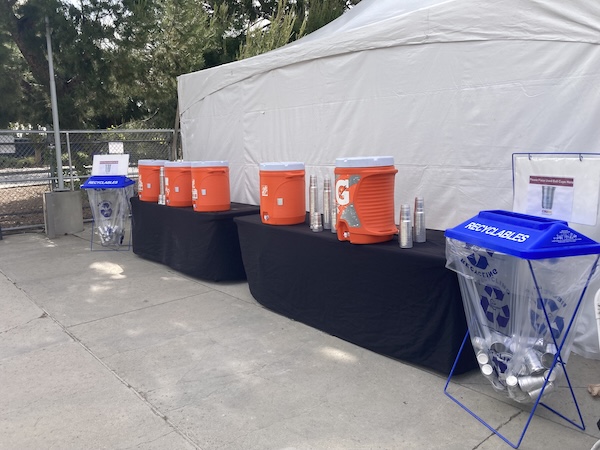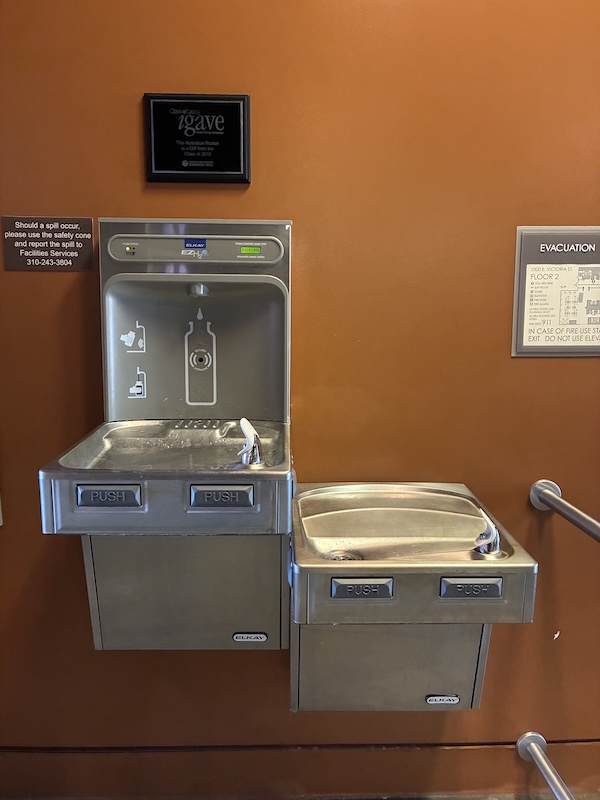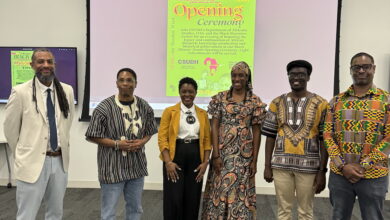
Source: National Wildlife Federation
The National Wildlife Federation is excited to award the California State University (CSU), Dominguez Hills the Plastics Reduction Partner Bronze level certification for their efforts to reduce single-use plastics on campus.
CSU Dominguez Hills earned points towards their Bronze-level certification through actions to build awareness on campus about the harmful impacts of plastics, by encouraging behavior change to choose reusable over single-use plastics, implementing tangible changes in their campus-wide operations, and through their institutional leadership. Here are a few spotlights of CSU Dominguez Hills’ plastics reduction efforts:
Zero Waste Punch Card Program

The Zero Waste Punch Card was piloted in Fall 2024 at the campus Farmers Market, which has also gone zero waste, to encourage students, faculty, and staff to adopt sustainable practices and ease into the transition. Anyone in the campus community can participate by presenting a reusable item such as a utensil set, bag, water bottle, or straw. Participants receive a punch for every item they bring to our Farmers Market booth. Once the card is complete, they are entered into an opportunity drawing to win a prize. All participants also receive a smaller prize at the end of the semester.
Zero Waste Commencement

CSU Dominguez Hills’ Commencement has officially achieved zero waste for the first time since 2024! The Office of Sustainability has partnered with Ceremonies and Events to phase out single-use plastic water bottles and cups by introducing reusable aluminum Ball cups. After commencement, these cups are collected and returned to Campus Dining, where they are washed and reused for other campus events. To date, this effort has diverted 2,000 aluminum cups from the landfill.
Water Bottle Refill Access

In 2018, the interim Vice President of Administration and Finance authorized a campus-wide retrofit of all water fountains to incorporate bottle-filling stations. This initiative directly supports the CSU-wide Single-Use Plastic Policy, which prohibits the sale of plastic water bottles on campus. The retrofit makes it easier for the campus community to refill reusable bottles, helping cut down on plastic waste.
“At CSU Dominguez Hills, going zero waste means more than cutting down on trash. It’s about changing how we think about and care for our environment. Single-use plastics are still one of our biggest challenges, impacting our campus spaces and nearby ecosystems. By choosing reusable options and finding ways to reduce waste before it’s created, we’re protecting wildlife, saving resources, and inspiring our community to live more sustainably.” – Scarlett Zamora, Zero Waste Coordinator, Office of Sustainability, CSU Dominguez Hills.
Plastic pollution is a critical threat to the natural environment, with around eight metric tons of plastic entering the ocean every year. In some areas, twice as many sea turtles are accidentally ingesting plastic now than they were 25 years ago. Plastic ingestion and entanglement injures and kills countless marine birds and other wildlife every year.
There are few solutions to this problem as important as engaging America’s higher education institutions on the dangers of plastics build-up, and how the problem can be addressed through the reduction of purchase and use in campus dining facilities, laboratories, academic buildings, and more.
The Plastics Reduction Partner, launched in 2022, is the only certification program in the U.S. that recognizes colleges and universities for taking action to reduce the purchase and use of single-use plastics on campus. There are three levels of certification available: bronze, silver and green (introductory to advanced), and a comprehensive framework featuring four action areas, including building awareness, supporting behavior change, assessing and implementing operational change, and demonstrating institutional leadership.
The first step to becoming a Plastics Reduction Partner is to complete a commitment letter. Colleges and universities then proceed to work toward their chosen certification level by taking action and earning points in the four action areas.
The current list of institutions participating in the Plastic Reduction Partner program includes:
- Bard College, New York (Bronze Certified)
- Bowling Green State University (Commitment Letter)
- California State Polytechnic University, Humboldt (Bronze Certified)
- California State University Dominguez Hills (Bronze Certified)
- Catawba College (Commitment Letter)
- Drexel University, Pennsylvania (Commitment Letter)
- Howard Community College, Maryland (Commitment Letter)
- Northern Michigan University (Commitment Letter)
- Salisbury University, Maryland (Bronze Certified)
- St. Edward’s University, Texas (Commitment Letter)
- SUNY College of Environmental Science and Forestry, New York (Commitment Letter)
- University at Albany, New York (Commitment Letter)
- University of California, Berkeley (Commitment Letter)
- University of Massachusetts, Amherst (Commitment Letter)
- Wenatchee Valley College, Washington (Commitment Letter)
Participation in the Plastics Reduction Partner program is eligible for AASHE STARS materials management recognition credit. Additionally, the National Wildlife Federation is a proud member of the #BreakFreeFromPlastic movement, and the Plastic Pollution Coalition.
Test your knowledge
- How does plastic pollution impact sea lions and our natural marine environments?
- What is your plastic eco-score?
Learn more
- CSU Dominguez Hills’ Sustainability Efforts
- How to become a Plastics Reduction Partner
- Plastic Pollution Impacts on Humans
- Wildlife Impacts from Plastic Pollution
The Plastics Reduction Partner certification program was designed by Amber Saxton, Sustainability Program Manager, Campus Efficiencies, George Mason University (Virginia), with support from Kristy Jones, Director, Higher Education Programs, National Wildlife Federation. The following campuses served on an advisory committee, providing feedback for improvement before launch of the program in early 2022: Knox College, Mount Holyoke College, SUNY College of Environmental Science and Forestry, Texas Tech University and The Ohio State University.









